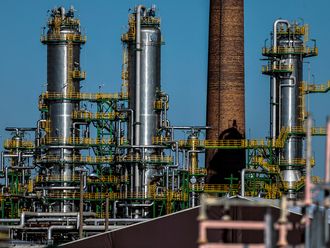Dubai: The volatility in the UAE markets is likely to continue following Thursday’s sell-off, according to analysts.
“There will be more weakness due to falling oil prices,” said Yaqoub Al Naqbi, managing director of Al Safwa Islamic Financial Services.
Another analyst agreed with the sentiment. “But we don’t expect a further significant sell-off based on fundamental valuations,” Saleem Khokhar, head of equities at National Bank of Abu Dhabi’s Asset Management Group, told Gulf News.
The Dubai Financial Market General Index tumbled 7.42 per cent to end at 3,594.45, its biggest one day fall since 2008. The index fell to a low of 3,594.92, a level last seen in January 2014. The Abu Dhabi Securities Market General Index ended 4.68 per cent lower at 4,368.31. About $150 billion has been wiped off the GCC markets since the end of October.
The current downturn has the markets on edge, Khokhar said, with some investors being forced to cover losses after margin calls.
“Nervousness and anxiety among retail investors would remain as many have leveraged positions and may be forced to sells.”
The UAE Central Bank announced last week it is looking at how it can limit stock-buying with bank loans.
Although the declines have left many stocks competitively priced by global standards, few people are willing to call a bottom for the markets just yet.
“Values are not the problem. The problem is that negative momentum has started - some clients are panicked,” said Mohammad Ali Yasin, managing director of NBAD Securities, told Reuters.
“What we need now is something to stabilise the markets until the panic selling is over. Until that happens, we may test new lows,” Khokhar added.












